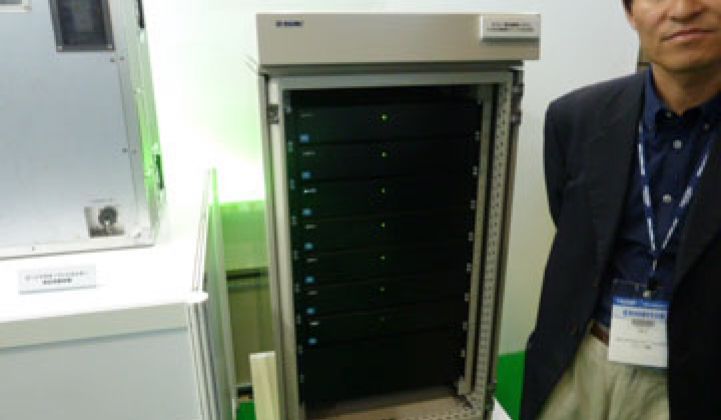Chiba, Japan -- Sony popularized lithium-ion batteries for notebooks and other devices with its lithium cobalt batteries in the early '90s. Now it wants to tackle the grid.
The company -- mostly known for household electronics and action movies -- is actively marketing a line of lithium phosphate batteries. Lithium phosphates hold 20 percent to 30 percent less energy than lithium cobalt batteries, but they come with two distinct advantages.
One, they are far safer and won’t result in a “runaway thermal reaction,” otherwise known as an explosion. Two, they can withstand far more charging cycles. Conventional lithium batteries might only endure 500 charge cycles. The lithium phosphates can endure 3,000 to 4,000 cycles, according to Masayuki Yasuda, senior general manager of the new business division at Sony Energy Devices during a meeting at Ceatec, a high-tech convention taking place outside of Tokyo.
“That’s maybe ten years,” he said. “They are improving in energy density but the important part is safety and longer cycle life.”
Sony came out with the batteries last year and is now marketing packs of them to utilities. The rack of modules you see in the picture can store 1.2 kilowatt hours.
Makita employs them in its power tools, he said. Sources have told us that Black and Decker, once a large customer of A123 Systems, swapped out A123’s lithium phosphate batteries for Sony’s in many power tools. Yasuda would not comment. A123’s SEC statements have shown that its business with Black and Decker has gone from 66 percent in 2007 to sliding below 14 percent.
It’s another example of creeping conglomeritis.



